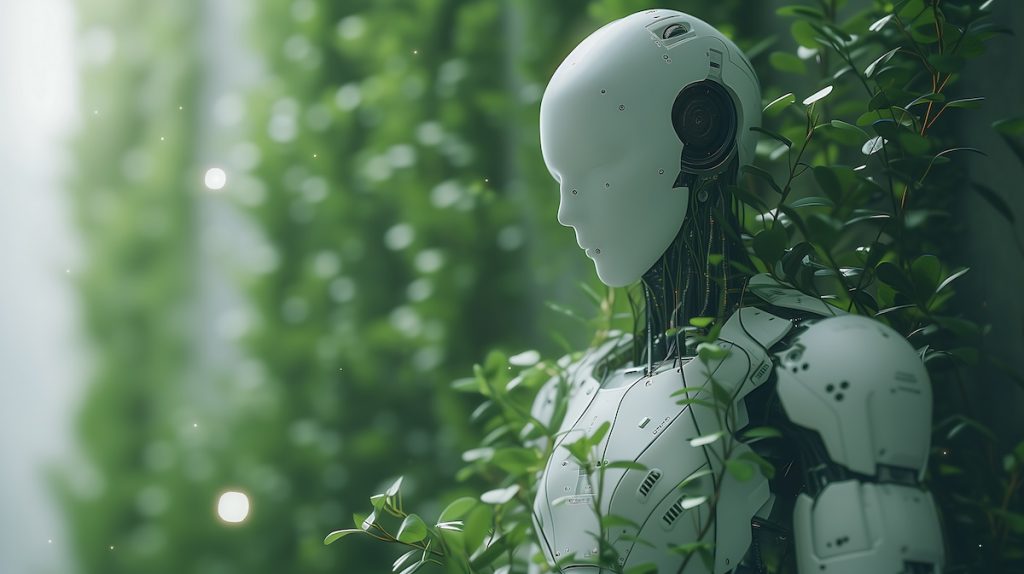The Role of Green Technology and AI-Driven Innovations in Sustainability and Environmental Conservation
The green technology and sustainability sector is transforming various industries and lifestyles around the world, driving the transition toward a more sustainable and environmentally friendly future. Innovative developments such as solar panels, wind turbines, electric vehicles, and smart grids, along with renewable energy, energy-efficient technologies, and sustainable materials, are aimed at reducing environmental impact and promoting conservation. This sector leads in providing clean alternatives to traditional methods, playing an important role in addressing environmental issues, while creating economic opportunities. It facilitates a sustainable future for the next generation.
The growing demand for AI-driven recycling technologies for sustainable innovation
The increasing need for AI-driven recycling technology is accelerating the adoption of green technology and expanding the scope of sustainable operations. The use of AI in recycling, especially in robotic sorting, inventory optimization, and quality control, improves resource efficiency and reduces environmental impact. Integrating AI algorithms into waste management systems enhances the effectiveness of real-time data analysis, allowing businesses with innovative decision-making to achieve ideal sustainability outcomes.
Businesses investing in AI-driven recycling solutions can gain a competitive advantage by showing environmental responsibility through more effective processes and reduced carbon footprints. By aligning with sustainability goals, they can improve their market position, attract eco-conscious customers, and restore their corporate reputation. For example, companies like AMP Robotics are changing the recycling landscape with AI-driven robotic technology that sorts materials more efficiently, resulting in higher recycling rates and less contamination.
Moreover, advances in AI in recycling surpass immediate benefits and stimulate further developments in green technology. This includes the development of sustainable methods for saving energy, smart waste management systems, and contemporary models for circular economies. Companies such as TOMRA are utilizing AI to enhance waste sorting, helping to create a future more focused on sustainability. As a result, the rise of AI-driven recycling technologies is transforming industries and promoting the adoption of more advanced, sustainable, and environmentally friendly practices.
Adoption of advanced technologies for a greener future
Industries such as manufacturing, healthcare, and IT & telecom are progressively adopting cutting-edge technologies like IoT, artificial intelligence, and big data to better manage and reduce carbon emissions. PwC and Microsoft have reported that implementing AI will help in lowering global greenhouse gas (GHG) emissions by 4% by the year 2030. This decrease equates to 2.4 gigatons of CO2, approximately equivalent to the combined annual emissions of Canada, Australia, and Japan in 2030.
For instance, IoT devices are utilized in the transportation and logistics industry to enhance routes, resulting in significant fuel savings. These advancements show how AI and IoT promote sustainability across various sectors. PwC and Microsoft predict that AI technologies focused on environmental benefits could reduce greenhouse gas emissions by 6.1% in North America and 4.8% in East Asia by 2030.
Green technology and sustainability software providers are witnessing increasing opportunities as industries continue to adopt these advanced technologies. The integration of these technologies helps achieve environmental goals and promotes a more sustainable future.
Summing Up
The green technology and sustainability field is progressing rapidly with innovations such as AI-driven recycling, the Internet of Things, and big data driving sustainability across various sectors. By integrating these technologies, businesses can reduce their environmental impact, improve productivity, and meet regulatory standards, leading to a cleaner and more sustainable future.
Short Description:
Green technology and sustainability focus on developments that reduce environmental impact and promote resource protection. AI-driven recycling, IoT, and big data advancements enhance efficiency and reduce greenhouse gas emissions across industries. Notable developments, such as Schneider Electric’s automated reporting and IBM Envizi’s emissions accounting, highlight the rapid progress of the industry toward a greener future.
About the author
 This article was written by Eswar Prasad, an Associate Vice President at Allied Market Research, has 15 years of experience in the information technology industry and is responsible for guiding market strategies and ensuring customer success. Eswar Prasad collaborates with clients from various sectors. With his team, he helps them improve their enterprises by utilizing technology to drive innovation and take advantage of opportunities arising from unexpected situations or challenges. He believes that a purposeful culture motivates people, increases their productivity, and prepares them to make wise decisions that benefit their clients’ prosperity.
This article was written by Eswar Prasad, an Associate Vice President at Allied Market Research, has 15 years of experience in the information technology industry and is responsible for guiding market strategies and ensuring customer success. Eswar Prasad collaborates with clients from various sectors. With his team, he helps them improve their enterprises by utilizing technology to drive innovation and take advantage of opportunities arising from unexpected situations or challenges. He believes that a purposeful culture motivates people, increases their productivity, and prepares them to make wise decisions that benefit their clients’ prosperity.
